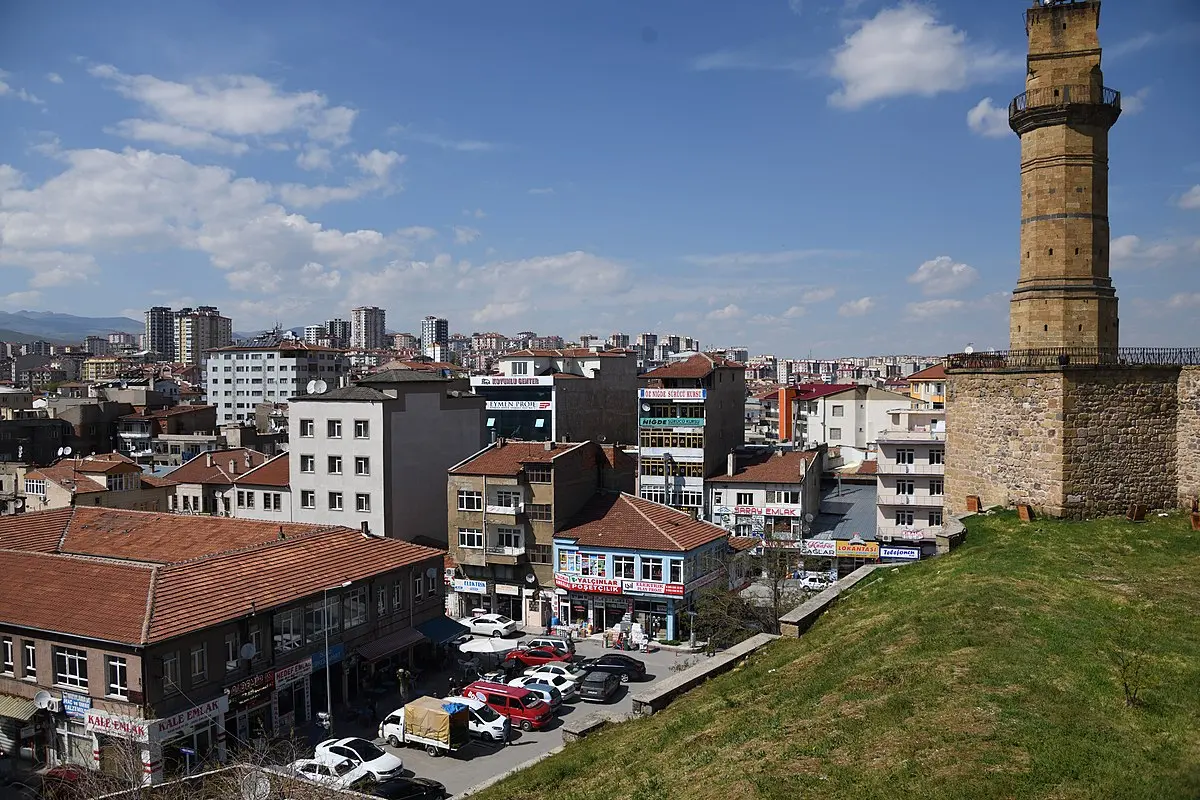


Visit Turkey
Explore Turkey, Embrace Adventure
No adress data
Accessibility
Visit Turkey network of websites has been designed to be accessible to all web users, irrespective of individual abilities and browser type. This statement gives information about accessibility features, and levels of conformance to industry standards.
Standards compliance
All pages on this site conform to the following standards where possible:
- W3C Web Content Accessibility Guidelines Single A (we also meet most Double A and some Triple A guidelines).
- Accessible Rich Internet Applications (WAI-ARIA) 1.0 landmark roles.
- HTML5 and CSS 3.
If you have any feedback about the accessibility of our website, please contact us. Your comments will help us improve our website in future, but please note that we will not necessarily be able to reply.
See Accessible Turkey for information about accessible Turkey hotels, attractions and travel in Turkey
Common Questions
The minimum wage in Turkey for 2024 has been a significant topic of discussion as the country continues to navigate economic challenges. Understanding the changes in the minimum wage is crucial for both employers and employees. In 2024, the net minimum wage in Turkey is set at 17,002.12 TL, with the gross wage being 20,002.50 TL. This increase reflects the ongoing adjustments to support the workforce amidst rising living costs. In this article, we will delve into the details of the 2024 minimum wage in Turkey, its impact on the economy, and how it compares to previous years.
Minimum Wage in Turkey for 2024
Significant Increase in 2024 Minimum Wage
The minimum wage in Turkey for 2024 has seen a substantial increase compared to previous years. The net wage is set at 17,002.12 TL, while the gross wage stands at 20,002.50 TL. This marks a significant rise from the second half of 2023, where the net wage was 11,402.32 TL and the gross wage was 13,414.50 TL. The increase aims to help workers cope with the rising costs of living in the country.
Comparison to Previous Years
To understand the significance of the 2024 minimum wage, it is essential to compare it with the figures from the past few years. In the first half of 2023, the net minimum wage was 8,506.80 TL, with a gross wage of 10,008 TL. Looking further back, the second half of 2022 saw a net wage of 5,500.35 TL and a gross wage of 6,471 TL. The consistent increases over the years highlight the government’s efforts to adjust wages in line with inflation and economic demands.
Average Salary in Turkey for 2024
Overview of Average Salaries
In 2024, the average salary in Turkey has also seen adjustments in response to economic conditions. As of August 2024, the average salary for a worker in the country is approximately 23,000 TL. This figure can vary significantly depending on factors such as industry, experience, and job role.
Worker Salaries in 2024
Focusing on worker salaries, the average monthly wage for a worker in 2024 is around 25,784 TL. This represents a substantial increase from the previous year, where the average worker salary in 2023 was 16,428 TL. The rise in wages reflects the broader economic trends and the need to support workers in the face of increasing expenses.
Impact of Minimum Wage Increase on the Economy
Economic Implications
The increase in the minimum wage for 2024 is expected to have several economic implications. On the one hand, higher wages can boost consumer spending, which is vital for economic growth. On the other hand, businesses may face increased operational costs, leading to potential price adjustments or hiring freezes. The balance between supporting workers and maintaining business sustainability will be crucial in the coming year.
Government Policies and Support
The Turkish government has been proactive in adjusting the minimum wage to align with inflation and economic needs. This ongoing effort to increase wages aims to improve the standard of living for workers while also stimulating the economy. However, it also requires careful management of fiscal policies to avoid adverse effects on businesses and employment rates.
Conclusion
The minimum wage in Turkey for 2024 has been significantly increased to 17,002.12 TL net and 20,002.50 TL gross. This rise reflects the ongoing economic adjustments and the government’s commitment to supporting the workforce. With the average salary also seeing an increase, the overall impact on the economy remains a critical area to monitor. As Turkey continues to navigate its economic challenges, these wage adjustments play a vital role in shaping the country’s financial landscape.
The popular local GSM operators in Turkey are Turkcell, Avea, and Vodafone.
Antalya is located on the Mediterranean Sea. This coastal city is situated along the Turkish Riviera, known for its stunning beaches and crystal-clear waters, making it a popular destination for tourists seeking sun, sea, and cultural experiences.
Turkey, situated at the crossroads of Asia and Europe, follows the Eastern European Time (EET) zone. This time zone is GMT+2, meaning it is 2 hours ahead of London (Coordinated Universal Time (GMT/UTC)), 7 hours ahead of New York, and 10 hours ahead of Los Angeles, except during the spring-to-autumn Daylight Saving Time.
Turkish Time Zones: Eastern European Time (EET)
Standard Time (November to March)
- Turkey is 2 hours ahead of GMT (GMT+2).
Daylight Saving Time (April to October)
- Turkey advances its clocks by one hour, shifting to GMT+3.
Daylight Saving Time in Turkey
- Begins: The last Sunday in March, with clocks turned ahead one hour.
- Ends: The last Sunday in October, with clocks turned back one hour.
Time Comparison
When it’s noon in Turkey, the local times in various global cities are as follows:
Location April-October November-March Istanbul & Ankara 12 noon 12 noon Paris, Rome 11 am 11 am London 10 am 10 am New York 5 am 5 am Los Angeles 2 am 2 am Hong Kong, Perth 6 pm 5 pm Sydney 8 pm 7 pm Auckland 10 pm 9 pm World Time Zone Map
A world time zone map can be highly beneficial for understanding global time differences, planning travel, or coordinating international meetings.
Turkey, a country rich in history and natural beauty, offers a variety of transportation options for both domestic and international travelers. Whether you’re planning to explore the bustling cities, historical sites, or serene coastal towns, Turkey’s extensive transport network can cater to all your travel needs. Here’s a detailed look at the various modes of transport available in Turkey.
Travel by Plane
Domestic Flights
Turkey’s vast size makes air travel a convenient option for covering long distances. Turkish Airlines and several other competent carriers, such as Onur Air, Atlasjet, Anadolu Jet, Pegasus Air, and Sun Express, offer frequent flights between major cities. Domestic flights are relatively inexpensive, with most fares ranging from TL89 to TL250 one-way. Major airports are well-connected, making air travel a time-efficient way to move around the country.
Major Airports and Codes
- Istanbul Airport (IST)
- Sabiha Gökçen Airport (SAW)
- Ankara Esenboğa Airport (ESB)
- Antalya Airport (AYT)
Travel by Bus
Modern Bus Network
Turkey boasts a robust network of modern, luxurious buses that connect cities and towns across the country. This mode of transport is particularly popular among locals. Although it might be challenging to find fare and schedule information online, it’s easy to obtain once you’re in Turkey. Bus departures are frequent, and advanced reservations are generally not necessary on most routes.
Sample Routes and Travel Times
- Istanbul to Ankara: Approximately 450 km (280 miles), 6-7 hours by bus.
- Istanbul to Izmir: Approximately 480 km (300 miles), 7-8 hours by bus.
- Istanbul to Antalya: Approximately 720 km (450 miles), 10-12 hours by bus.
Travel by Car
Car Rentals
For those who enjoy the freedom of movement and are comfortable driving, renting a car is an excellent option. However, it’s essential to note that most rental cars have a manual transmission (“stick shift”), not automatic. Renting a car allows you to explore off-the-beaten-path destinations at your own pace.
Driving Tips
- Drive on the right side of the road.
- Always carry your driver’s license, international driving permit, and vehicle registration documents.
- Be aware of local traffic rules and regulations.
Travel by Train
High-Speed Trains
Turkey is rapidly expanding its high-speed train network, aiming to connect 15 cities that hold half of the country’s population. These trains offer a fast, comfortable, and affordable way to travel between major cities. Notable routes include:
- Istanbul to Ankara: Approximately 4-5 hours.
- Ankara to Konya: Approximately 1.5 hours.
Conventional Trains
Conventional trains are also available and can be a more economical option. Although slower than buses, they offer more seating room and comfort.
Useful Resources
- TCDD Taşımacılık A.Ş.: The official site for Turkish State Railways, providing schedules and booking options.
Travel by Ship & Ferry
Cruise Ships
Cruise ships frequently dock at Turkish ports, including Istanbul and Kuşadası, providing easy access to popular destinations like Ephesus.
Sea of Marmara Ferryboats
Ferry services across the Sea of Marmara connect Istanbul with Yalova and Bandırma, offering a scenic and relaxing mode of travel.
Dardanelles Ferries
Ferries across the Dardanelles Strait link Europe and Asia, connecting key historical sites such as Çanakkale, Troy, and the Gallipoli battlefields.
Greek Islands—Turkey Ferries
Regular ferry services connect Greek islands with the Turkish coast. Check schedules and fares on Feribot.net.
Cyprus—Turkey Ferries
Ferries operate year-round between Girne (Kyrenia) in Northern Cyprus and Turkish ports like Taşucu/Silifke, with additional services to Alanya in the summer.
Tips for Traveling During Major Holidays
Travel can be particularly crowded during major Turkish holidays. It’s wise to plan and book your transportation in advance during these peak periods to ensure availability and avoid long waits.
Turkey, a country rich in history and natural beauty, offers a variety of transportation options for both domestic and international travelers. Whether you’re planning to explore the bustling cities, historical sites, or serene coastal towns, Turkey’s extensive transport network can cater to all your travel needs. Here’s a detailed look at the various modes of transport available in Turkey.
Travel by Plane
Domestic Flights
Turkey’s vast size makes air travel a convenient option for covering long distances. Turkish Airlines and several other competent carriers, such as Onur Air, Atlasjet, Anadolu Jet, Pegasus Air, and Sun Express, offer frequent flights between major cities. Domestic flights are relatively inexpensive, with most fares ranging from TL89 to TL250 one-way. Major airports are well-connected, making air travel a time-efficient way to move around the country.
Major Airports and Codes
- Istanbul Airport (IST)
- Sabiha Gökçen Airport (SAW)
- Ankara Esenboğa Airport (ESB)
- Antalya Airport (AYT)
Travel by Bus
Modern Bus Network
Turkey boasts a robust network of modern, luxurious buses that connect cities and towns across the country. This mode of transport is particularly popular among locals. Although it might be challenging to find fare and schedule information online, it’s easy to obtain once you’re in Turkey. Bus departures are frequent, and advanced reservations are generally not necessary on most routes.
Sample Routes and Travel Times
- Istanbul to Ankara: Approximately 450 km (280 miles), 6-7 hours by bus.
- Istanbul to Izmir: Approximately 480 km (300 miles), 7-8 hours by bus.
- Istanbul to Antalya: Approximately 720 km (450 miles), 10-12 hours by bus.
Travel by Car
Car Rentals
For those who enjoy the freedom of movement and are comfortable driving, renting a car is an excellent option. However, it’s essential to note that most rental cars have a manual transmission (“stick shift”), not automatic. Renting a car allows you to explore off-the-beaten-path destinations at your own pace.
Driving Tips
- Drive on the right side of the road.
- Always carry your driver’s license, international driving permit, and vehicle registration documents.
- Be aware of local traffic rules and regulations.
Travel by Train
High-Speed Trains
Turkey is rapidly expanding its high-speed train network, aiming to connect 15 cities that hold half of the country’s population. These trains offer a fast, comfortable, and affordable way to travel between major cities. Notable routes include:
- Istanbul to Ankara: Approximately 4-5 hours.
- Ankara to Konya: Approximately 1.5 hours.
Conventional Trains
Conventional trains are also available and can be a more economical option. Although slower than buses, they offer more seating room and comfort.
Useful Resources
- TCDD Taşımacılık A.Ş.: The official site for Turkish State Railways, providing schedules and booking options.
Travel by Ship & Ferry
Cruise Ships
Cruise ships frequently dock at Turkish ports, including Istanbul and Kuşadası, providing easy access to popular destinations like Ephesus.
Sea of Marmara Ferryboats
Ferry services across the Sea of Marmara connect Istanbul with Yalova and Bandırma, offering a scenic and relaxing mode of travel.
Dardanelles Ferries
Ferries across the Dardanelles Strait link Europe and Asia, connecting key historical sites such as Çanakkale, Troy, and the Gallipoli battlefields.
Greek Islands—Turkey Ferries
Regular ferry services connect Greek islands with the Turkish coast. Check schedules and fares on Feribot.net.
Cyprus—Turkey Ferries
Ferries operate year-round between Girne (Kyrenia) in Northern Cyprus and Turkish ports like Taşucu/Silifke, with additional services to Alanya in the summer.
Tips for Traveling During Major Holidays
Travel can be particularly crowded during major Turkish holidays. It’s wise to plan and book your transportation in advance during these peak periods to ensure availability and avoid long waits.
Yes, the majority of ATMs offer English and other language options, making it easy for foreigners to navigate the transaction process.
Discover Turkey now!
Düzce
Nestled in the lush landscape of northwestern Turkey, Düzce is [...]
agriculture in Düzce, Akçakoca, Black Sea region, cultural festivals, Düzce, Düzce attractions, Düzce climate, Düzce economy, Düzce transportation, eco-tourism, Efteni Lake, history of Düzce, industry in Düzce, Konuralp Museum, natural beauty, Ottoman history, Prusias ad Hypium, Roman ruins, Samandere Waterfall, Turkey travel, Turkish cuisine, Turkish provinces
Niğde
Niğde, a quaint yet historically rich city nestled in Turkey’s [...]
Alaaddin Mosque, ancient Tyana, Central Anatolia attractions, Eski Gümüşler Monastery, historical Niğde, historical sites in Niğde, Niğde, Niğde Archaeological Museum, Niğde Castle, Niğde climate, Niğde Province, Niğde sightseeing, Niğde tourism, Niğde travel, Niğde Turkey, scenic spots in Niğde, Sungur Bey Mosque, travel in Central Anatolia, Turkish cities to visit
Şırnak
Şırnak, a city in southeastern Turkey, is the capital of [...]
ancient city Şırnak, Kurdish Şırnak, Şırnak, Şırnak archaeological sites, Şırnak culture, Şırnak education, Şırnak festivals, Şırnak history, Şırnak landscapes, Şırnak local cuisine, Şırnak museums, Şırnak natural beauty, Şırnak tourism, Şırnak transport, Şırnak travel guide, Şırnak Turkey, travel Şırnak, visit Şırnak
Şanlıurfa
Şanlıurfa, often referred to as the “City of Prophets,” is [...]
ancient city, Balıklıgöl, Birecik, culture, day trips from Şanlıurfa, Dergah Complex, Göbekli Tepe, Gümrük Han, Harran, hidden gem, historical sites, Şanlıurfa, Şanlıurfa Archaeology Museum, Şanlıurfa attractions, Şanlıurfa Bazaar, Şanlıurfa city center, Şanlıurfa cuisine, Şanlıurfa festivals, Şanlıurfa music, Şanlıurfa nights, things to do in Şanlıurfa, tourism, travel, Turkey, Urfa Castle
Adıyaman
Adıyaman, Turkey, is a hidden treasure in the southeastern region [...]
Adıyaman, Adıyaman Airport, Adıyaman attractions, Adıyaman Kebab, Adıyaman Museum, ancient ruins, Arsameia, Atatürk Dam, Cendere Bridge, Çiğ Köfte, culinary delights, cultural heritage, culture, Gaziantep, hidden gem, historical sites, International Nemrut Kommagene Festival, Kahta, Karakuş Tumulus, local markets, Mount Nemrut, natural beauty, outdoor activities, Perre Ancient City, Şanlıurfa, scenic landscapes, tatlı, things to do in Adıyaman, tourism, traditional handicrafts, travel, Turkey




